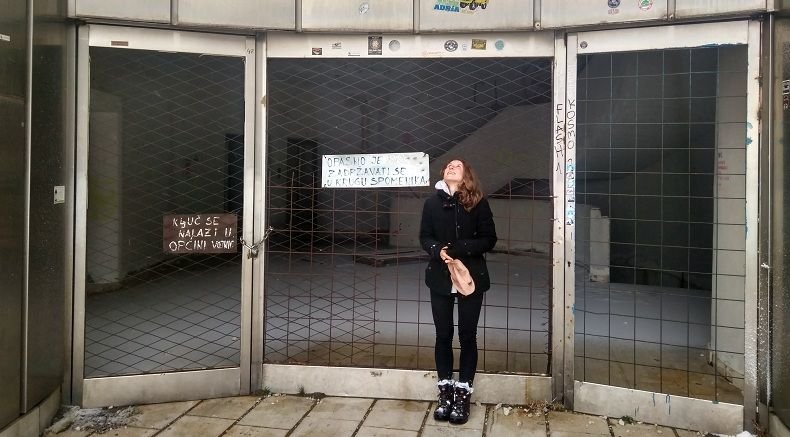This weekend I went hiking through the snow with a very special mission: to start a trail of visiting abandoned abstract monumental structures that were built during Socialist Federal Republic of Yugoslavia, from 1960s to 1980s. This particular one is located at Petrova Gora mountain, south-west of Zagreb.
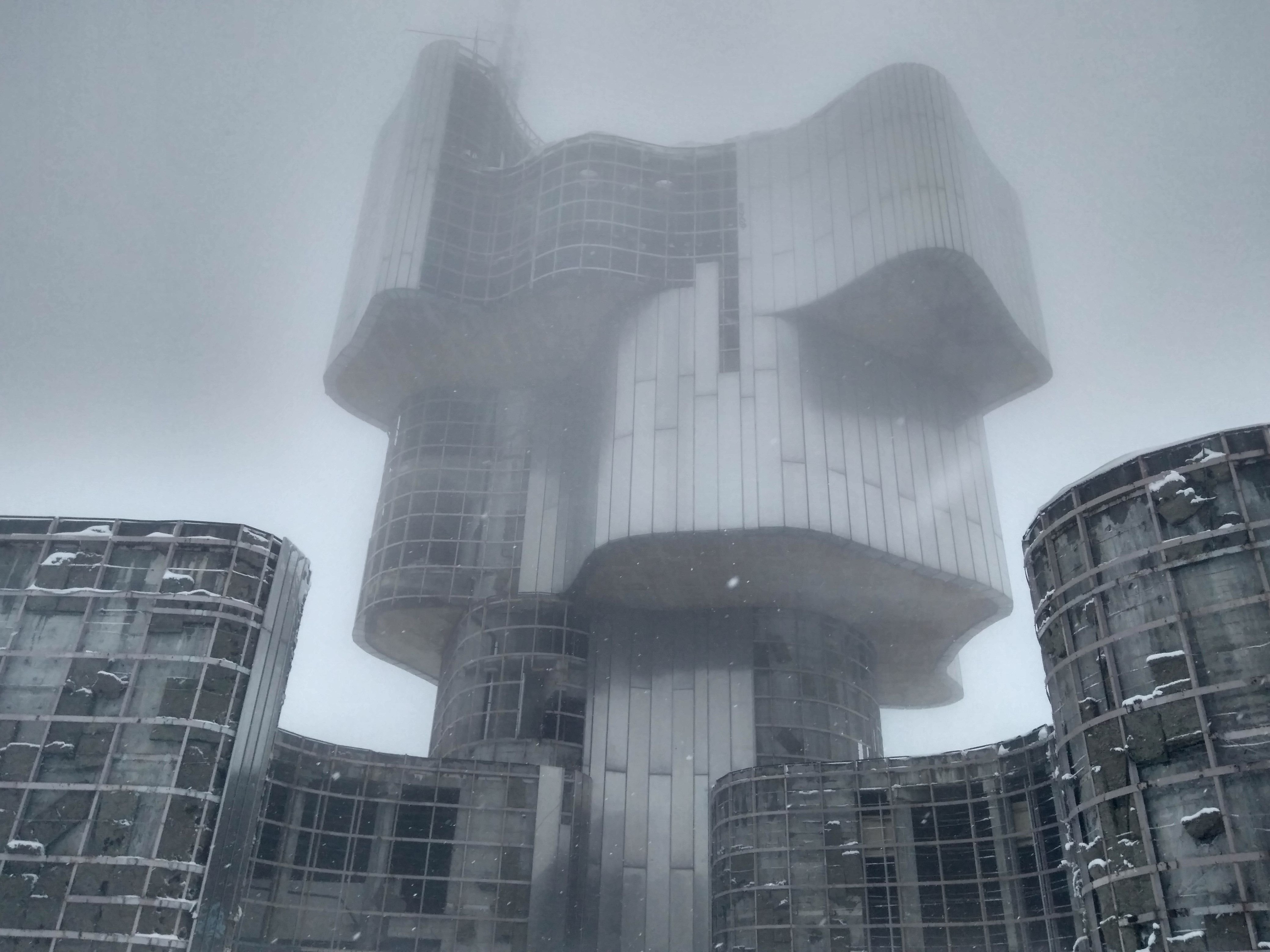
One of the many
Petrova Gora is one of the monuments, that are memorials to honor Yugoslavian people resistance struggle during the WWII (National Liberation War). Their purpose was to commemorate war victims during occupation and to celebrate Revolution led by Tito's Partisan Army of rebels.
The thing that makes those monuments unique is their sculptural style: GEOMETRIC ABSTRACTION, EXPRESSIONISM, MINIMALISM, that embodied most important Yugoslavian political and cultural goals:
- those styles were exact opposite of traditional and figurative Soviet socialist-realism style, representing Yugoslavian distinction of USSR and looking up to Western artistic movements of the time
- new abstract style and decontextualization was supposed to create a new language that would unite different ethnic groups (Slovenian, Croatian, Serbian, Bosnian, Macedonian), as well as war victims and its perpetrators, commemorating tragedies of both sides.
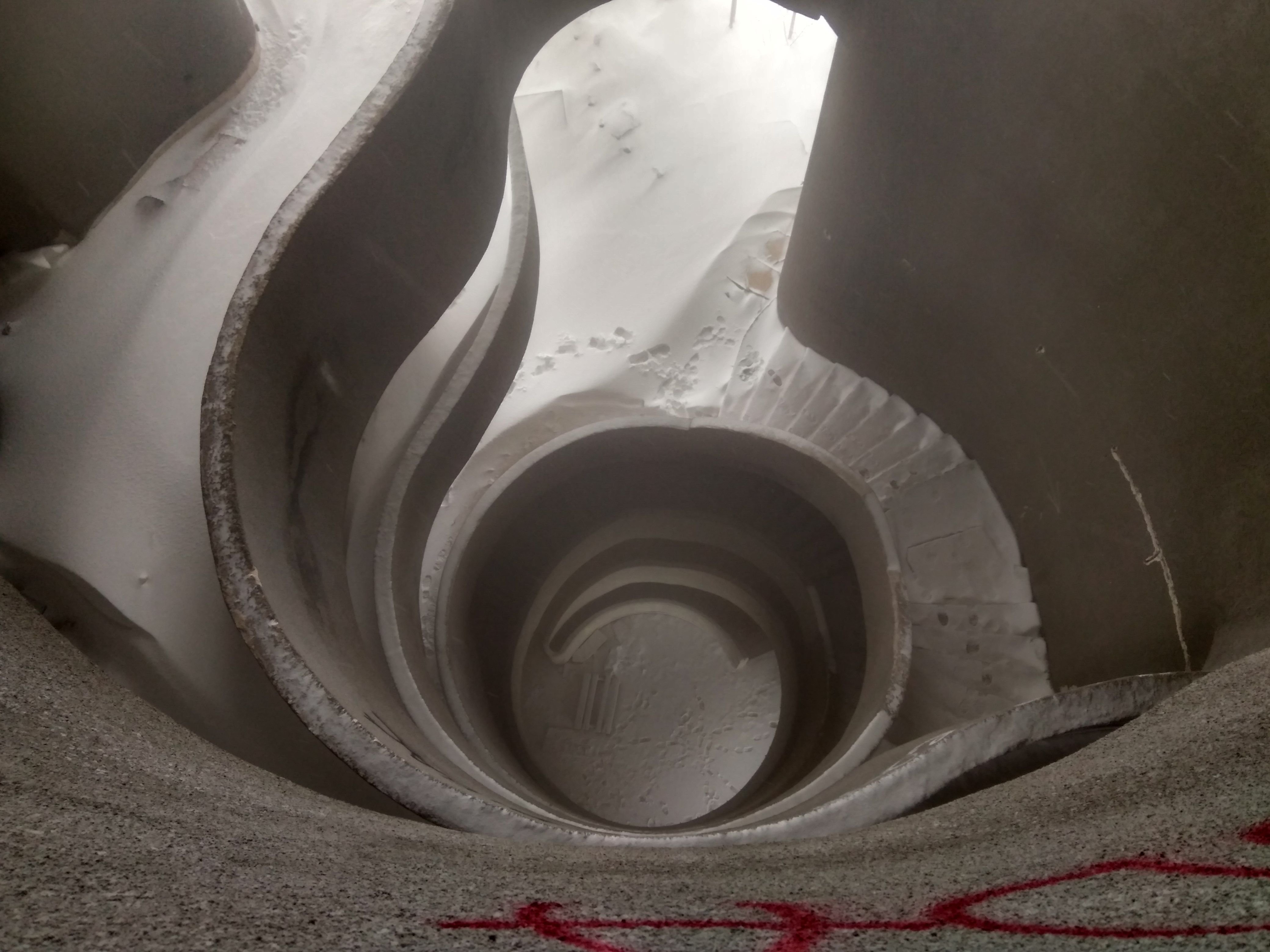
Monument to the Uprising of the People of Kordun and Banija (Petrova Gora)
Memorial building is located at Mali Petrovac, the highest point in Petrova Gora Mountain. It is dedicated to ethnic Serb victims during 1941-1942.
Completed in 1981, it was designed by a sculptor Vojin Bakić and architect Berislav Šerbetić, that won second design competition in 1974. A 37 meters high concrete structure, divided in five undulating layers and cladded with stainless steel plates, hosted congress hall, library, reading room, cafe and museum in 3000 sqare meters.
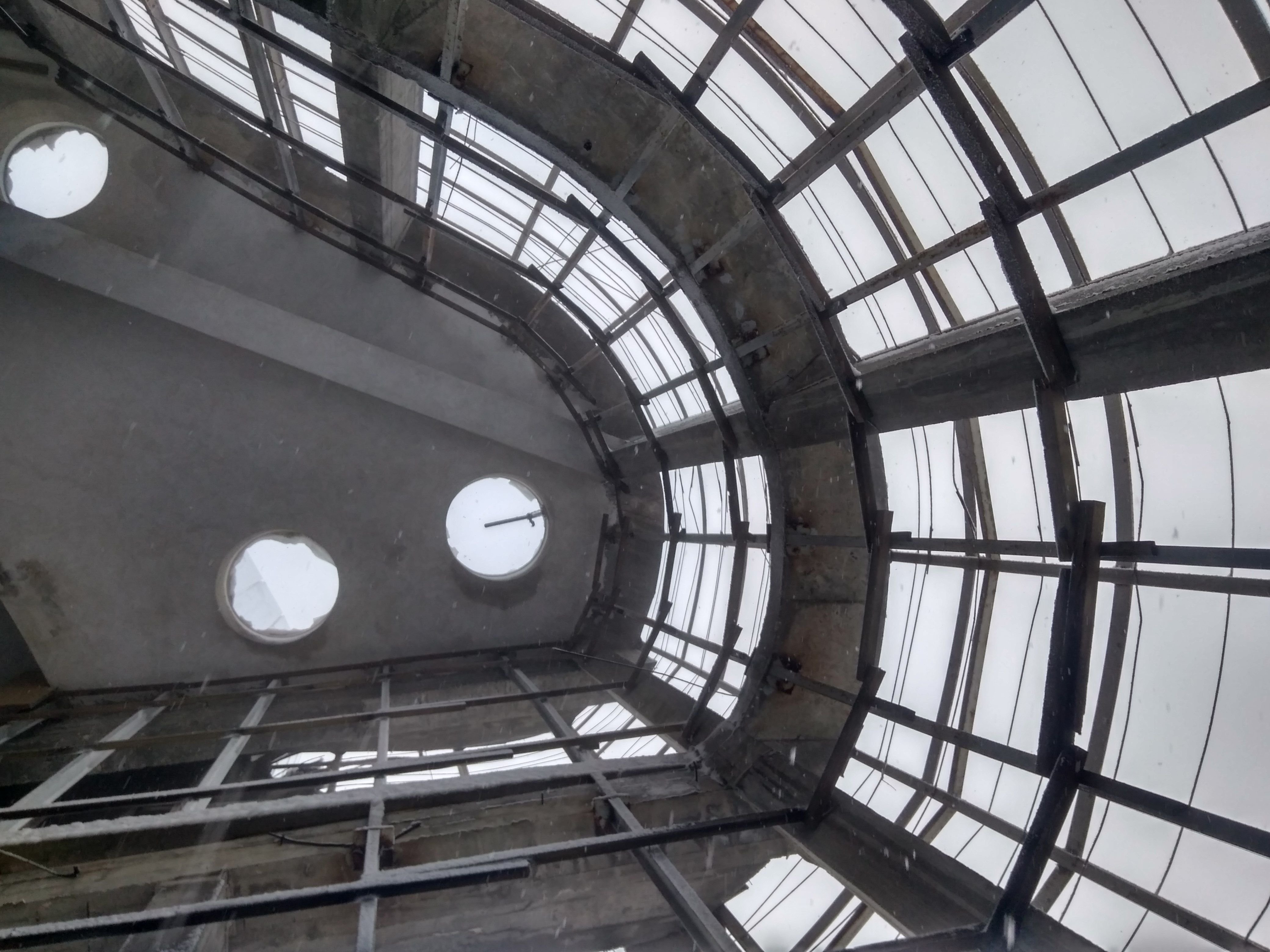
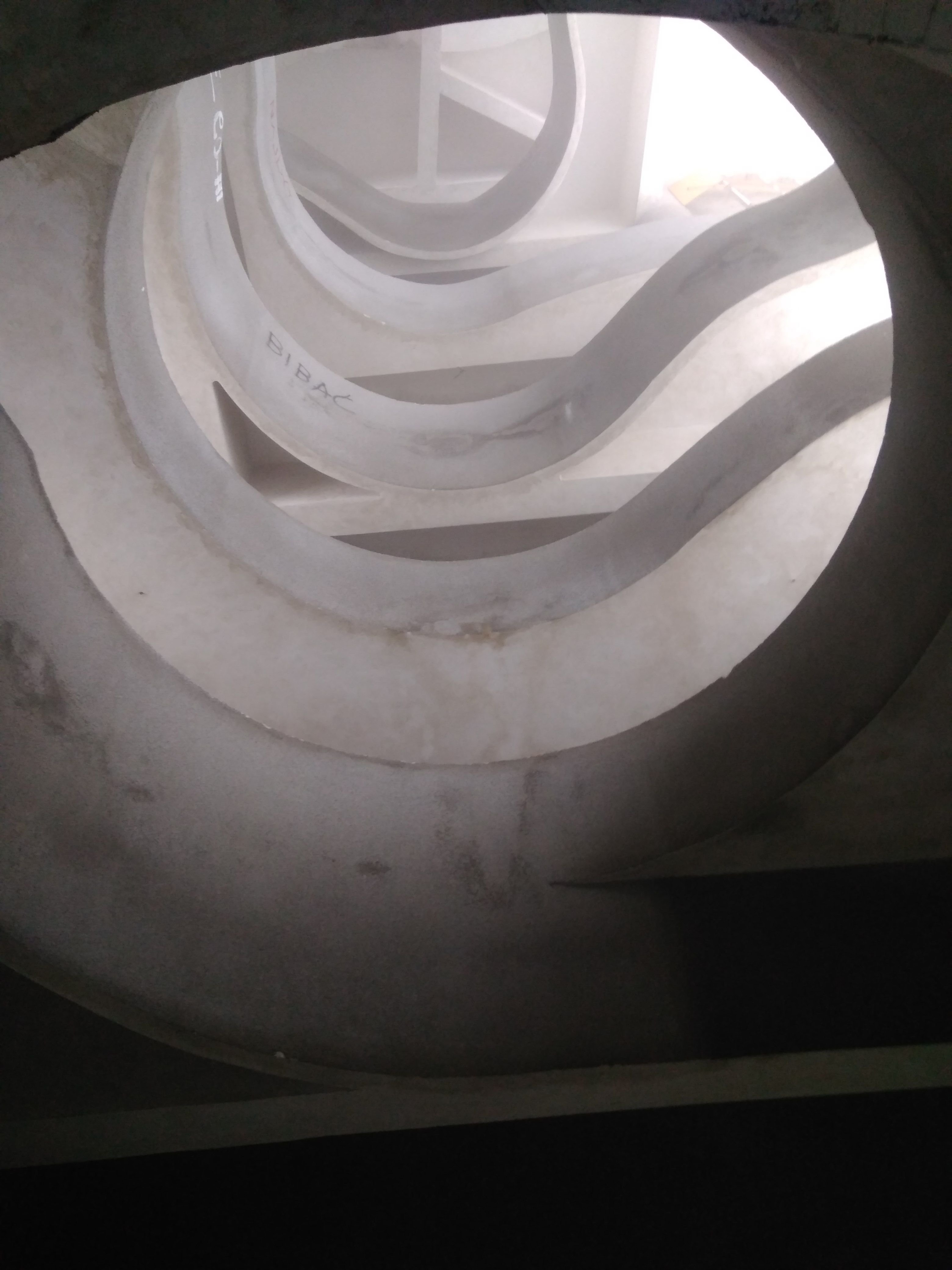
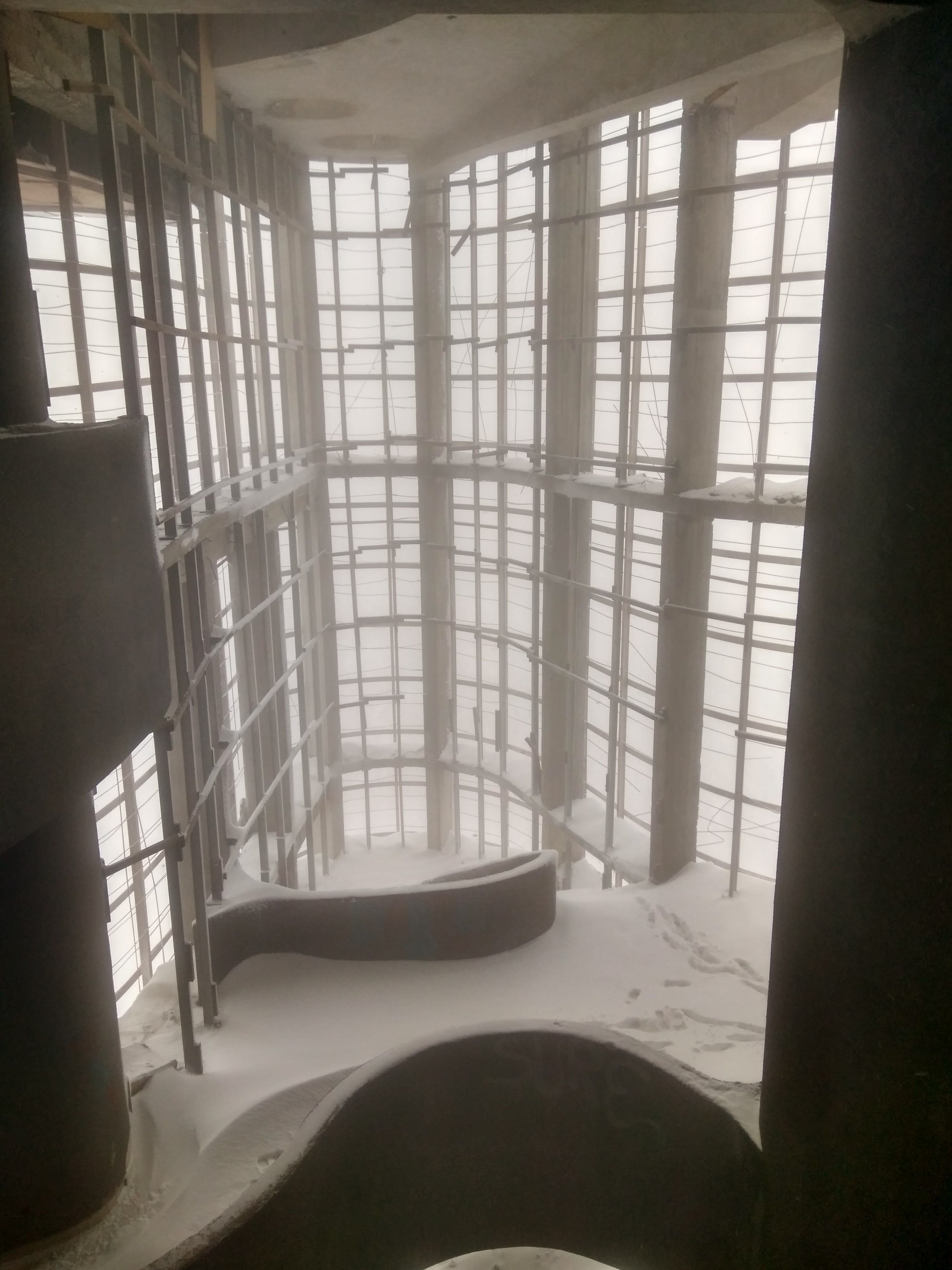
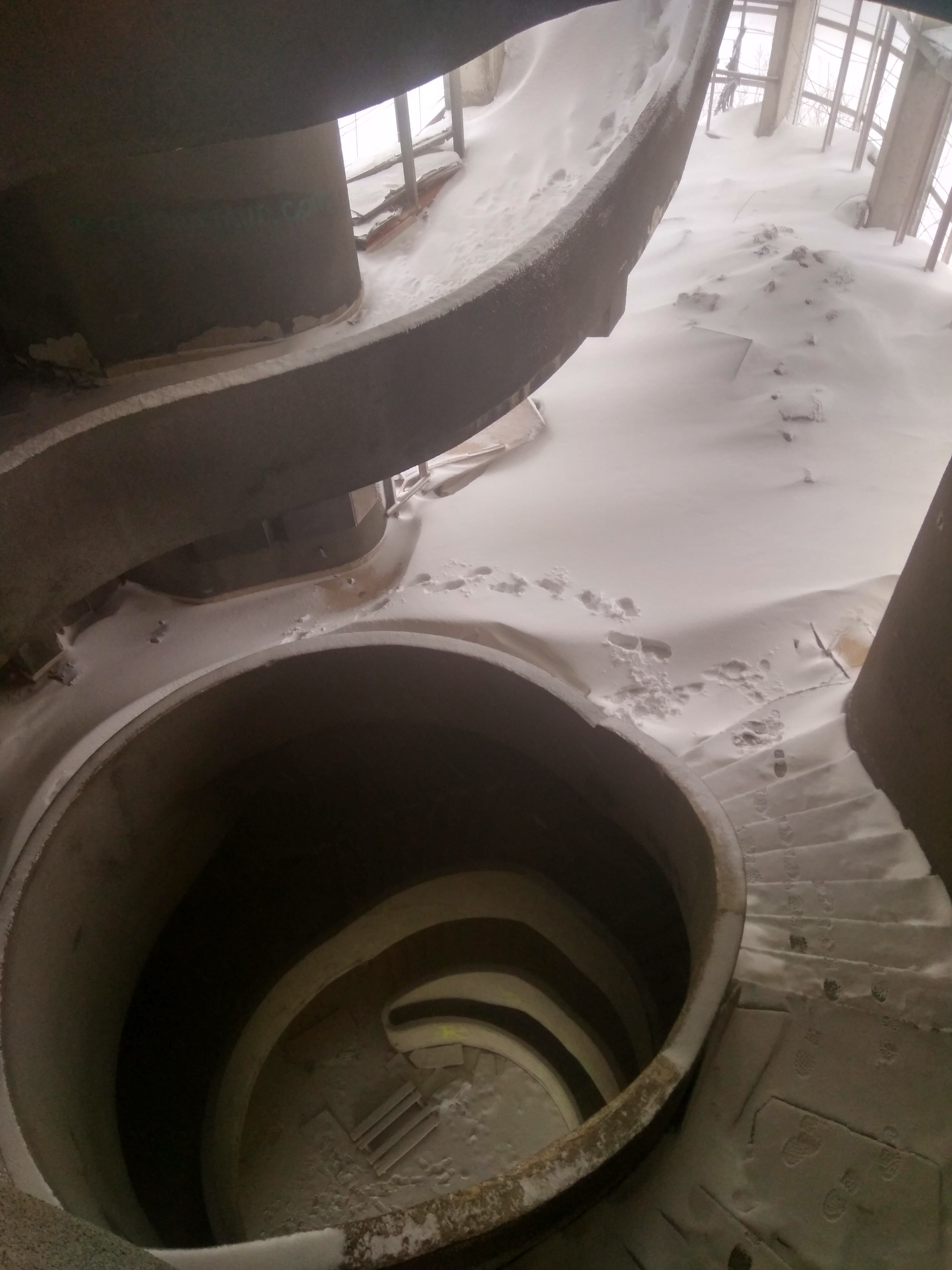
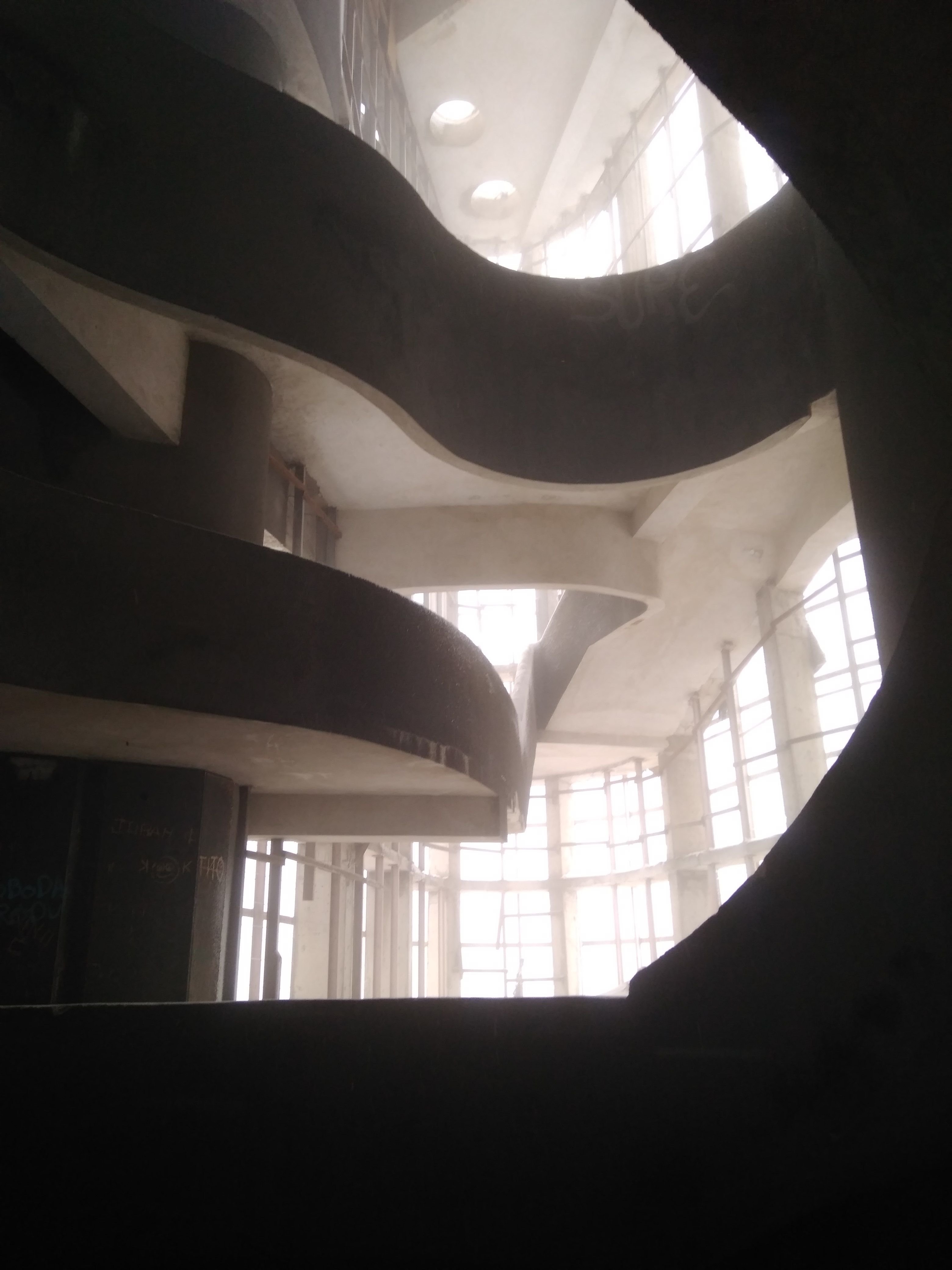
Deterioration
Ever since the Yugoslavia fell apart, those monuments were abandoned to slowly decay, sometimes even destroyed because the resentment at the political system that commissioned them. This is even more visible on Petrova Gora, because most of the metal cladding was removed, allowing snow and rain into interior.
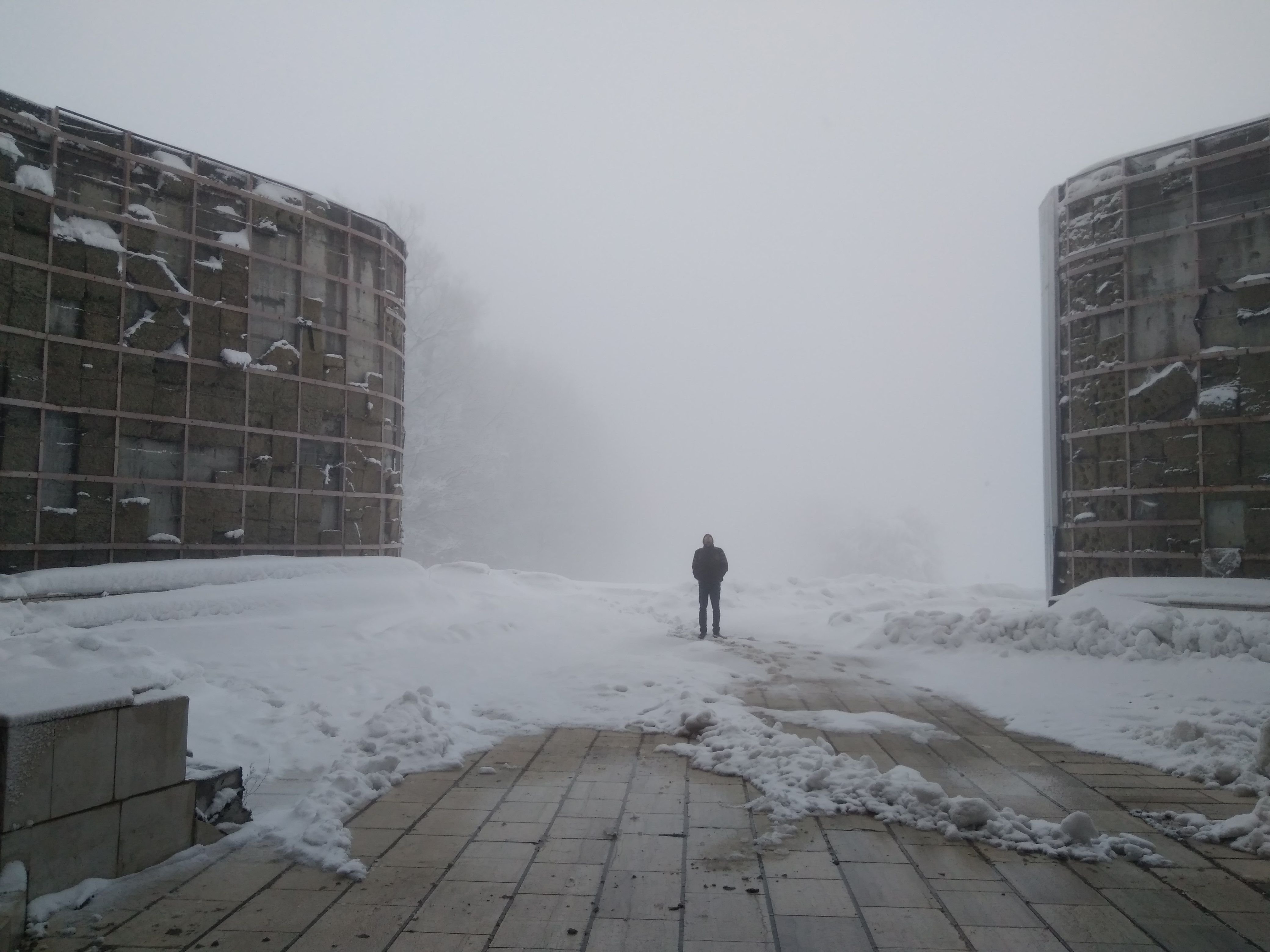
The day we went to visit the monument was snowing all the time, but that gave some monochromatic experience of the space and nature while hiking up the hill. Usually you could see far, far away from the monument and his top, but the thick fog was all around. Dreamy white diffuse light was inside the monument, and fog was translucent boundary that acted as long lost facade.
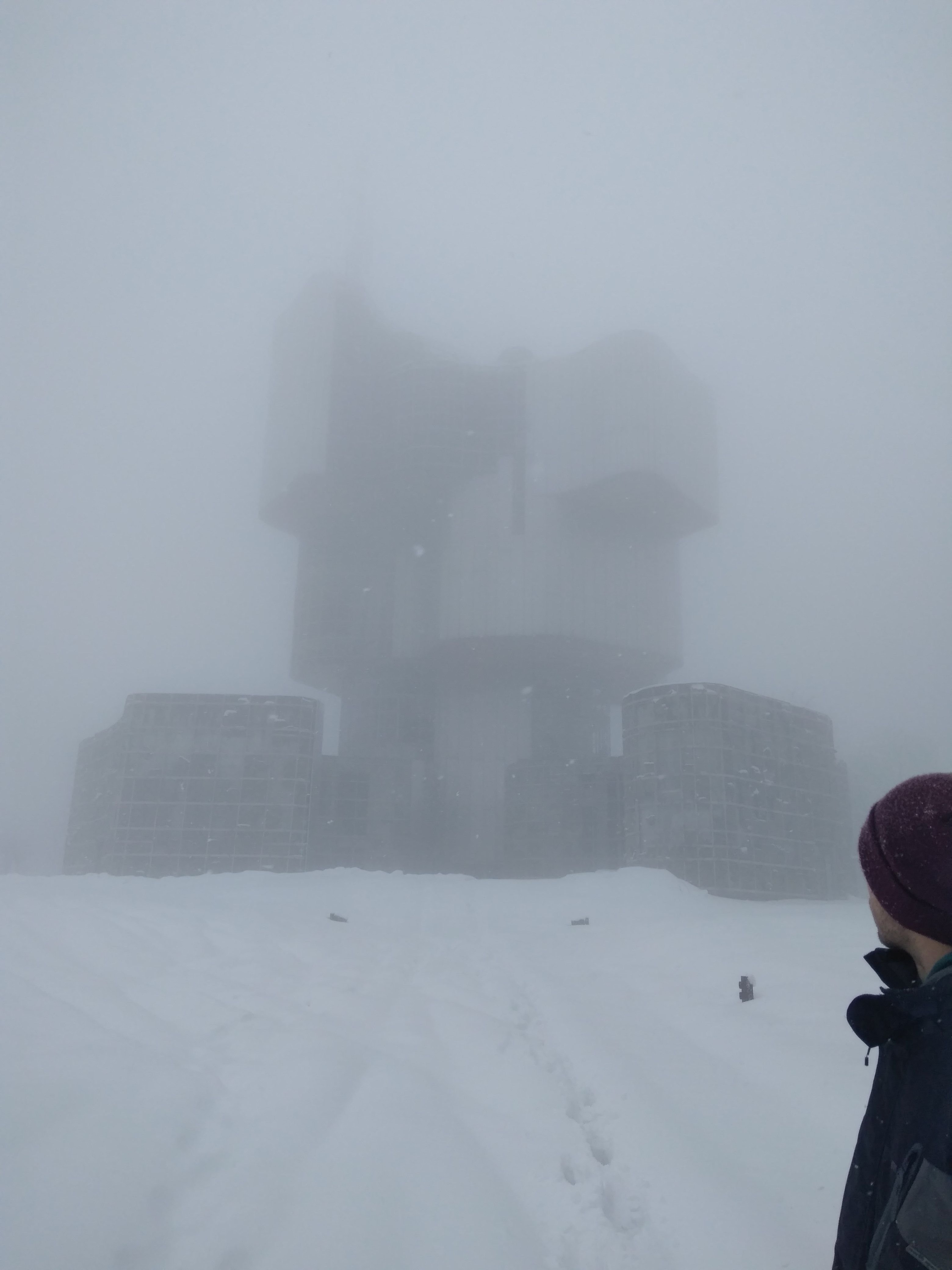
Petrova Gora offers more interesting places, historical and natural beauty. The plan is to visit again in spring, to finally experience the view from the top. These winter photos also have their dreamy quality so you can enjoy the hazy atmosphere of my visit.
If you want to know more about this magnificent monuments, I recently discovered this very informative page that is dedicated to this topic: http://www.spomenikdatabase.org/
